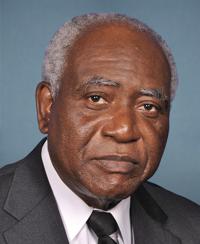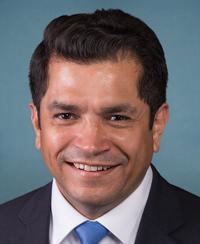0
0
0
Low-Income Housing Renewable Energy Credit Act
12/31/2022, 9:00 AM
Summary of Bill HR 5183
Bill 117 HR 5183, also known as the Low-Income Housing Renewable Energy Credit Act, is a piece of legislation currently being considered by the US Congress. The purpose of this bill is to provide tax credits to developers of low-income housing projects that incorporate renewable energy sources.
The bill aims to incentivize the use of renewable energy in low-income housing developments in order to reduce energy costs for residents and promote sustainability. By offering tax credits to developers who invest in renewable energy technologies such as solar panels or wind turbines, the bill seeks to make these projects more financially feasible and attractive.
If passed, the Low-Income Housing Renewable Energy Credit Act would have a positive impact on both the environment and low-income communities. By encouraging the use of renewable energy in housing developments, the bill would help reduce greenhouse gas emissions and combat climate change. Additionally, by lowering energy costs for low-income residents, the bill would help alleviate financial burdens and improve quality of life. Overall, the Low-Income Housing Renewable Energy Credit Act is a promising piece of legislation that has the potential to benefit both the environment and low-income communities. It is currently being reviewed by Congress and may be voted on in the near future.
The bill aims to incentivize the use of renewable energy in low-income housing developments in order to reduce energy costs for residents and promote sustainability. By offering tax credits to developers who invest in renewable energy technologies such as solar panels or wind turbines, the bill seeks to make these projects more financially feasible and attractive.
If passed, the Low-Income Housing Renewable Energy Credit Act would have a positive impact on both the environment and low-income communities. By encouraging the use of renewable energy in housing developments, the bill would help reduce greenhouse gas emissions and combat climate change. Additionally, by lowering energy costs for low-income residents, the bill would help alleviate financial burdens and improve quality of life. Overall, the Low-Income Housing Renewable Energy Credit Act is a promising piece of legislation that has the potential to benefit both the environment and low-income communities. It is currently being reviewed by Congress and may be voted on in the near future.
Congressional Summary of HR 5183
Low-Income Housing Renewable Energy Credit Act
This bill increases the rate of the energy tax credit for solar facilities placed in low-income communities.
Read the Full Bill
Current Status of Bill HR 5183
Bill HR 5183 is currently in the status of Bill Introduced since September 7, 2021. Bill HR 5183 was introduced during Congress 117 and was introduced to the House on September 7, 2021. Bill HR 5183's most recent activity was Referred to the House Committee on Ways and Means. as of September 7, 2021
Bipartisan Support of Bill HR 5183
Total Number of Sponsors
1Democrat Sponsors
1Republican Sponsors
0Unaffiliated Sponsors
0Total Number of Cosponsors
14Democrat Cosponsors
14Republican Cosponsors
0Unaffiliated Cosponsors
0Policy Area and Potential Impact of Bill HR 5183
Primary Policy Focus
TaxationAlternate Title(s) of Bill HR 5183
To amend the Internal Revenue Code of 1986 to provide for an increase in energy credit for solar facilities placed in service with low-income communities, and for other purposes.
Low-Income Housing Renewable Energy Credit Act
Low-Income Housing Renewable Energy Credit Act
Comments
Sponsors and Cosponsors of HR 5183
Latest Bills
Providing amounts for the expenses of the Committee on Ethics in the One Hundred Nineteenth Congress.
Bill HRES 131December 12, 2025
Providing for congressional disapproval under chapter 8 of title 5, United States Code, of the rule submitted by the Bureau of Land Management relating to "Central Yukon Record of Decision and Approved Resource Management Plan".
Bill HJRES 106December 12, 2025
Expressing the sense of the House of Representatives in condemning the Government of the People's Republic of China for its harassment and efforts to intimidate American citizens and other individuals on United States soil with the goal of suppressing speech and narratives the People's Republic of China finds unwelcome.
Bill HRES 130December 12, 2025
Providing for congressional disapproval under chapter 8 of title 5, United States Code, of the rule submitted by the Bureau of Land Management relating to "North Dakota Field Office Record of Decision and Approved Resource Management Plan".
Bill HJRES 105December 12, 2025
Providing for congressional disapproval under chapter 8 of title 5, United States Code, of the rule submitted by the Bureau of Land Management relating to "Miles City Field Office Record of Decision and Approved Resource Management Plan Amendment".
Bill HJRES 104December 12, 2025
Providing amounts for the expenses of the Select Committee on the Strategic Competition Between the United States and the Chinese Communist Party in the One Hundred Nineteenth Congress.
Bill HRES 104December 12, 2025
Critical Access for Veterans Care Act
Bill S 1868December 12, 2025
OATH Act of 2025
Bill S 1665December 12, 2025
A bill to extend the authority for modifications to the Second Division Memorial in the District of Columbia.
Bill S 1353December 12, 2025
Saving Our Veterans Lives Act of 2025
Bill S 926December 12, 2025
Inflation Reduction Act of 2022
Bill HR 5376September 5, 2023





